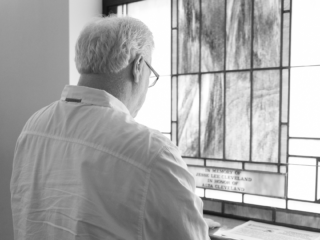Pastors have been using other preacher’s material for years. When I was growing up, preachers would regularly quote Billy Graham, Vance Pittman, and Charles Spurgeon. They would also throw in a quote from their favorite childhood preacher or seminary professor. This was common and even expected. Preachers steal lines from each other all the time. If you are ever in a conversation with a preacher and say something witty, the preacher in the group will shout out, “That will preach!” When you hear that, you know your line has been stolen.
I have friends who are professional speakers who charge several thousand dollars per speech. When I talk to any of them, they always feel sorry for me. What they do is prepare four or five very good speeches and give those speeches to different audiences. Pastors preach to the same congregation week after week. According to my speaking friends, it’s a lot easier to find a new audience than it is to write a new speech.
This may be a news flash for those of you who sit in the pews every week, but preaching is hard. Good preaching is harder. Great preaching is almost impossible.
Preparing a sermon takes a lot of time. The rule of thumb is one hour of preparation for every minute you speak. it’s not hard to find something to say. There is always more to say than you can include in one sermon. The hardest part is crafting what has been learned in research into a form that can be heard and remembered by the congregation. The Scripture has to be explained, the context given, and an application made to the congregation’s life, and all of this has to be done within the limits of an ever-shrinking attention span.
Churches would do well to protect the sermon preparation time needed by their pastors. Going deep into the Scriptures and bringing that Scripture to the intersection of the congregation’s life takes a lot of unbroken concentration. Most of the time, pastors are frazzled and tired when they come to the pulpit on Sunday morning. There have been to too many meetings, counseling sessions, and hospital visits to prepare properly. The sermon has a good thought, but the delivery rambles and the points are hard to follow.
Like I said, good preaching takes a lot of time, most churches don’t understand this, and fewer protect the pastor’s time to prepare a good sermon.
Several years ago, we were restructuring our deacon ministry. As a last resort, we read the instructions. In Acts 6, we have the story of the first deacons. The deacons fixated on an interesting part of the passage. While everyone agreed the deacons were to take care of the widows and their families, few of them had noticed the insistence of the apostles, that their ministry should be one of prayer and study of the Scriptures. Looking up from this passage, one of the deacons said, “That settles it. We do the pastoral care of the church and our pastor preaches and prays.” They were going to do the pastoral care. I would study the Word and pray. For over twenty years, that’s been my job description.
I say this to answer the objection raised by most preachers when they defend their poor preaching. They simply don’t have the time, they will say, to prepare their sermons.
This is also the number one excuse used when a preacher is accused of plagiarism. “I had to come up with a sermon.” “I had a bad week, and I didn’t have time to prepare.”
So, they stole somebody else’s sermon. Now, let’s understand what a sermon is. A sermon is the residue left from an encounter of the pastor with God through His Word on behalf of the congregation. The congregation calls the pastor to go into the mystery and come back with the words from God that will give them life. In our research, we will find brilliant and insightful comments from other preachers. We are free to use all of this AS LONG AS WE GIVE THE ORIGINAL AUTHOR CREDIT.
The problem isn’t using something written by someone else. The problem is passing it off as yours. It’s stealing.
What’s more, it’s a betrayal of your people. Fred Craddock, the dean of preaching from the last generation, reminded pastors that for their churches, they are the theologian. Go ahead. Quote all of the great thinkers of Christian history. But more than anything, our congregations want to know what we think, what we know. They trust the pastor to know them. They trust their pastor to know God. What happens when the pastor talks to God about the congregation? What did the pastor hear from God that needs to be passed on to them?
No one else can do that for a pastor. You can’t trade that off. The congregation trusts you to do this on their behalf.
To use someone else’s sermon is stealing.
Worse, it’s a violation of trust that may not be repairable.









